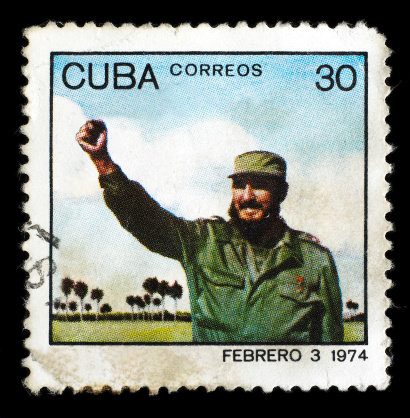Fidel Castro’s death, announced on Friday, at times appears to bend time. He only made rare public appearances over the past decade. His brother Raul took his place as president in 2008, prompting a flurry of death rumors. But even while largely absent in sight, the man who took the island nation five decades ago still influenced the lives of its 11.39 million residents. His echo remained.
Ruth Ruiz, who works with the Georgia Baptist Foundation, remembers Cuba before Castro. In 2008 she recalled to The Index living as a child with her family in a home built by her grandfather. The sounds of turkeys, pigs, cows, horses, and other farm animals made up the sounds of her surroundings. A nearby postcard-ready beach served as a convenient vacation spot.
 Post stamp with Fidel Castro, via Getty Images
Post stamp with Fidel Castro, via Getty ImagesSo when political leaders like Canadian Prime Minister Justin Trudeau and former U.S. presidential candidate Jill Stein offer praise for the now-dead dictator, Cuban-Americans like Ruiz flinch. She remembers the family farm being taken by the government "for the good of the people." She remembers her father spending 16 years in prison, his family forced from their homeland halfway through his sentence. She remembers not seeing him again until 1979, when he was finally allowed to join his family in America.
Others didn't fare as well. The total number of people killed at the hands of the Castro regime officially numbers close to 10,000, according to a 2005 Wall Street Journal article citing CubaArchive.org. However, those numbers required painstaking detail and confirmation for each death by two different sources. Cuba Archive President and Executive Director Maria Werlau says the number could easily be ten times that amount.
"I pray for a better government in Cuba ... and for a better economy and issues such as freedom of speech. I despise the things Castro has done to my country," Ruiz told The Index in 2008. "It's sad to see current photos and how things have changed."
Like with other dictatorships, religious liberty suffered under the Castro brothers. A 2015 State Department report asserted the Cuban government has "continued to control most aspects of religious life. The government harrassed some religious leaders and their followers with threats, detentions, confiscation of religious materials and restrictions on travel."
The report included religious groups saying Cuban leadership recently loosened its restraints. Consequently, groups are allowed to take part in charitable and educational efforts like working with schools and building up small religious libraries.
Samuel Aleman, pastor of International Baptist Church in Atlanta, echoes that observation.
"The tolerance for liberty is better now," he says. "The government can't control the growth and multiplication of churches in houses. The Baptist churches are well, growing and serving the Lord."
Aleman alluded to it. Dictatorial/Socialistic/Communist leaderships historically haven't welcomed outside thought processes. In particular, they don't welcome placing salvation somewhere other than in government. State-sanctioned churches are closely monitored, and Cuba is no different. Technically, the country's constitution "recognizes, respects, and guarantees freedom of religion." In addition, it prohibits discrimination based on religion.
The reality paints a different picture.
The Office of Religious Affairs monitors all religious groups, who must apply to the Ministry of Justice for official recognition. The process requires the groups to identify the location of their activities, a list of proposed leadership, and source of funding. Application is denied should the MOJ decide a group duplicating the one applying already exists.
However, if accepted the group begins the process of asking permission from the government on a litany of tasks. These include holding meetings in approved locations, publishing minutes from meetings, receiving foreign visitors, importing religious literature, purchasing and operating motor vehicles, and constructing, repairing, or purchasing places of worship. Therefore, failing to register may bring about fines or closing down the organization altogether.
Take a look through that list again. How would you feel about going to the government for permission to get the church van fixed or bringing in a missionary to speak?
So, when Georgia Baptists and others make noise about religious liberty, there's a reason.
Both Ruiz and Aleman adamantly state that even though Fidel is gone, things are no better under 85-year-old Raul.
"Cuba is under the same totalitarian system," warns Aleman. "Nothing will change."
"Fidel was never a leader but a dictator," agrees Ruiz. "Things will not change. The legacy he leaves is one of hardship, despair, oppression, and no hope for tomorrow."
But, Aleman says he and fellow Cuban-Americans can finally count on Fidel Castro facing judgment.
"Fidel will be before God and pay for his crimes. ... This is the time for me to remember that God has the perfect justice system. Fidel lived 90 years imposing a system that destroyed a country and kept him and his people in power. In all those years human justice did not touch him but now, that long life is against him.
"I do not feel happy for his death, but I feel that at last justice has prevailed."